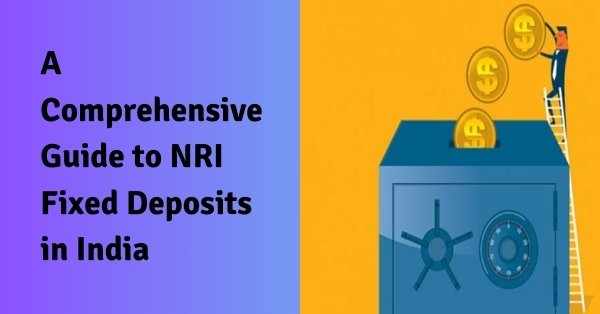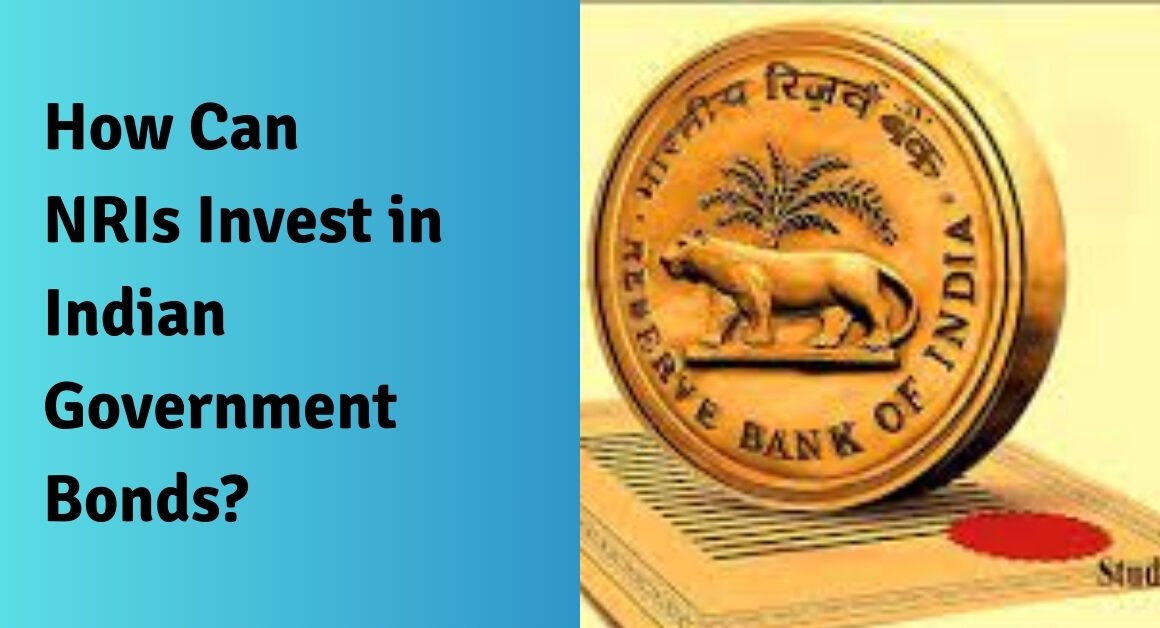How to Transfer Your Retirement Savings to India as an NRI?
As a Non-Resident Indian (NRI) planning to return to India, transferring your retirement savings is a crucial step in your financial transition. This process requires careful planning and consideration of various factors, including tax implications, currency exchange rates, and investment options in India. In this blog, we’ll guide you through the process of transferring your retirement savings to India effectively and efficiently. Understanding Your Retirement Savings Before initiating the transfer process, it’s essential to understand the types of retirement savings you may have: Each of these savings types may have different rules and regulations regarding withdrawal and transfer, especially for non-residents. Steps to Transfer Retirement Savings to India Evaluate Your Current Financial Situation Start by assessing your current retirement savings, outstanding debts, and future financial needs in India. This evaluation will help you determine how much of your savings you should transfer. Research Tax Implications Understand the tax consequences of withdrawing and transferring your retirement savings. This may involve: It’s crucial to consult with tax professionals in both countries to optimize your tax strategy. Choose the Right Time to Transfer Consider factors such as: Timing your transfer wisely can significantly impact the value of your savings in India. Select an Appropriate Transfer Method There are several ways to transfer your retirement savings to India: Each method has its pros and cons in terms of speed, cost, and convenience. Research and choose the most suitable option for your situation. Open Appropriate Bank Accounts in India If you haven’t already, open NRE and NRO (Non-Resident Ordinary) accounts in India. These accounts are designed for NRIs and offer various benefits: Consider Investment Options in India Once your funds are in India, explore various investment options to grow your retirement corpus: Each option has its own risk profile, returns potential, and tax implications. Choose based on your risk appetite and financial goals. Plan for Currency Risk Management To mitigate the risk of currency fluctuations affecting your savings: Address Social Security Benefits If you’re entitled to Social Security benefits from countries like the US: Review and Adjust Your Strategy Regularly review your transfer and investment strategy. Factors to consider include: Be prepared to adjust your approach as necessary. Challenges and Considerations Conclusion Transferring your retirement savings to India as an NRI is a complex process that requires careful planning and execution. By understanding the various aspects involved – from tax implications to investment options – you can make informed decisions that secure your financial future in India. Remember, each individual’s situation is unique, so it’s crucial to tailor your approach to your specific circumstances and seek professional advice when needed. Frequently Asked Questions (FAQs) Disclaimer: The information provided here is for educational and informational purposes only and should not be construed as financial, legal, or tax advice. Consult with a qualified professional before making any investment decisions. We do not accept any liability for errors or omissions in this information nor any direct, indirect, or consequential losses arising from its use.
Exploring the NRI Investment Routes: PIS, NRO, and NRE Accounts
As a Non-Resident Indian (NRI), navigating the complex world of investment options in your home country can be challenging. This guide aims to shed light on three essential investment routes available to NRIs: Portfolio Investment Scheme (PIS), Non-Resident Ordinary (NRO) accounts, and Non-Resident External (NRE) accounts. Understanding these options is crucial for making informed financial decisions and maximizing your investment potential in India. Portfolio Investment Scheme (PIS) The Portfolio Investment Scheme is a specialized investment route designed exclusively for NRIs who wish to invest in the Indian stock market. This scheme allows NRIs to purchase and sell shares and convertible debentures of Indian companies through recognized stock exchanges. Key features of PIS: To participate in PIS, an NRI must open a PIS account with an authorized dealer bank in India. This account acts as a conduit for all stock market-related transactions, ensuring compliance with regulatory requirements. Non-Resident Ordinary (NRO) Account An NRO account is a bank account in India that NRIs can use to manage the income earned in India. This includes rental income, dividend income, or any other income generated within the country. Key features of NRO accounts: NRO accounts offer flexibility in managing funds within India but have restrictions on repatriation. These accounts are particularly useful for NRIs who have regular income sources in India or need to maintain funds for local expenses. Non-Resident External (NRE) Account An NRE account is designed for NRIs to transfer foreign earnings to India. This account offers the benefit of full repatriation, making it an attractive option for those who wish to maintain the flexibility of moving funds in and out of India. Key features of NRE accounts: NRE accounts are particularly beneficial for NRIs who want to take advantage of higher interest rates in India while maintaining the option to repatriate funds as needed. Choosing the Right Investment Route The choice between PIS, NRO, and NRE accounts depends on various factors, including your investment goals, risk appetite, and repatriation needs. Here are some considerations to help you decide: It’s important to note that these options are not mutually exclusive. Many NRIs maintain a combination of these accounts to meet their diverse financial needs and investment objectives. Regulatory Compliance and Tax Implications As an NRI investor, it’s crucial to be aware of the regulatory requirements and tax implications associated with each investment route. The Foreign Exchange Management Act (FEMA) governs most aspects of NRI investments in India. Additionally, tax treaties between India and your country of residence may affect your tax liability. It’s advisable to consult with a financial advisor or tax professional who specializes in NRI investments to ensure compliance with all regulations and to optimize your tax strategy. Conclusion PIS, NRO, and NRE accounts offer NRIs a range of options for investing in India and managing their finances effectively. By understanding the features and benefits of each route, you can make informed decisions that align with your financial goals and circumstances. Remember to stay updated on regulatory changes and seek professional advice when needed to make the most of your NRI investment journey. Frequently Asked Questions (FAQs) Disclaimer: The information provided here is for educational and informational purposes only and should not be construed as financial, legal, or tax advice. Consult with a qualified professional before making any investment decisions. We do not accept any liability for errors or omissions in this information nor any direct, indirect, or consequential losses arising from its use.
How to Open a Demat Account in India as an NRI?
As a Non-Resident Indian (NRI), you might be interested in investing in the Indian stock market. To do this, you’ll need a Demat account. This blog post will guide you through the process of opening a Demat account in India as an NRI, including the requirements, steps, and important considerations. What is a Demat Account? A Demat account, short for Dematerialized account, is an electronic account that holds your securities (stocks, bonds, mutual funds, etc.) in digital form. It eliminates the need for physical share certificates, making trading and investing more convenient and secure. Types of Demat Accounts for NRIs NRIs can open two types of Demat accounts in India Requirements for Opening a Demat Account as an NRI Before you start the process, make sure you have the following documents ready: Steps to Open a Demat Account as an NRI Important Considerations for NRI Demat Accounts Benefits of Having a Demat Account as an NRI Conclusion Opening a Demat account as an NRI is a straightforward process that can open up new investment opportunities in the Indian market. By following the steps outlined in this guide and staying informed about the regulations, you can effectively manage your investments in India while residing abroad. Remember to choose a reputable DP and consult with financial advisors to make informed decisions that align with your investment goals. Frequently Asked Questions (FAQs) Disclaimer: The information provided here is for educational and informational purposes only and should not be construed as financial, legal, or tax advice. Consult with a qualified professional before making any investment decisions. We do not accept any liability for errors or omissions in this information nor any direct, indirect, or consequential losses arising from its use.
Mutual Fund Investment Options for NRIs: What You Need to Know
As a Non-Resident Indian (NRI), you have a unique set of investment opportunities and challenges. Mutual funds can be an excellent way to grow your wealth while maintaining a connection to the Indian financial markets. This guide will explore the various mutual fund investment options available to NRIs and provide essential information to help you make informed decisions. Understanding NRI Status and Investment Rules Before diving into mutual fund options, it’s crucial to understand who qualifies as an NRI and the basic rules governing their investments. An NRI is an Indian citizen who resides outside India for employment, business, or other purposes. The Reserve Bank of India (RBI) has set specific guidelines for NRI investments, which mutual fund companies must follow. Types of Accounts for NRI Mutual Fund Investments NRIs can invest in mutual funds through three types of accounts: Each account type has its own rules regarding repatriation and taxation, which we’ll explore in more detail. Mutual Fund Options for NRIs NRIs can invest in most types of mutual funds available to resident Indians, including: However, there are some restrictions. For example, NRIs cannot invest in mutual funds that have exposure to foreign securities. Investment Process for NRIs To invest in Indian mutual funds, NRIs must follow these steps: Many fund houses now offer online investment options, making the process more convenient for NRIs. Taxation of Mutual Fund Investments for NRIs Taxation is a critical aspect of NRI investments. The tax implications depend on various factors, including: Generally, short-term capital gains are taxed at higher rates than long-term capital gains. It’s advisable to consult with a tax professional familiar with NRI taxation to understand your specific tax obligations. Repatriation of Mutual Fund Investments Repatriation rules differ based on the type of account used for investment: Risks and Considerations for NRI Mutual Fund Investors While mutual funds offer numerous benefits, NRIs should be aware of certain risks: Strategies for Successful Mutual Fund Investing as an NRI To make the most of your mutual fund investments, consider these strategies: Conclusion Mutual funds offer NRIs an excellent opportunity to participate in India’s growth story while managing risk through professional fund management. By understanding the various options, tax implications, and investment strategies, you can make informed decisions that align with your financial goals. Remember to stay updated on regulatory changes and seek professional advice when needed. With careful planning and execution, mutual fund investments can be a valuable addition to your NRI investment portfolio. Frequently Asked Questions (FAQs) 10.How can NRIs track their mutual fund investments from abroad?Ans- Most fund houses offer online portals and mobile apps that allow NRIs to track and manage their investments remotely. Disclaimer: The information provided here is for educational and informational purposes only and should not be construed as financial, legal, or tax advice. Consult with a qualified professional before making any investment decisions. We do not accept any liability for errors or omissions in this information nor any direct, indirect, or consequential losses arising from its use.
Top Investment Opportunities for NRIs in India: A 2024 Guide
As we navigate through 2024, Non-Resident Indians (NRIs) continue to play a pivotal role in India’s economic landscape. With the Indian economy showing resilience and growth potential, NRIs are presented with many investment opportunities. This comprehensive guide aims to shed light on the most promising investment avenues available to NRIs in India, considering the current market trends and regulatory environment. Real Estate: A Tangible Asset with Growth Potential The Indian real estate sector has always been an attractive option for NRIs. In 2024, this sector continues to offer lucrative opportunities, especially in tier-2 and tier-3 cities where property prices are relatively lower but have significant growth potential. The government’s focus on infrastructure development and smart city initiatives has further boosted the attractiveness of real estate investments. NRIs can invest in residential properties, commercial spaces, or even Real Estate Investment Trusts (REITs). REITs, in particular, have gained popularity as they offer a way to invest in premium real estate without the hassles of direct property management. They provide regular income through dividends and the potential for capital appreciation. However, NRIS must be aware of the legal implications and tax regulations associated with real estate investments in India. Consulting with a legal expert who specializes in NRI property matters is advisable before making any significant investments. Equity Markets: Tapping into India’s Economic Growth The Indian stock market has shown remarkable resilience and growth over the years. As India continues its journey towards becoming a global economic powerhouse, the equity markets present a compelling opportunity for long-term wealth creation. NRIs can participate in the Indian stock market through various routes. Direct equity investments in listed companies, mutual funds, and Exchange Traded Funds (ETFs) are some of the popular options. The ease of opening and operating a Portfolio Investment Scheme (PIS) account has made it convenient for NRIs to invest in Indian equities. For those who prefer a more hands-off approach, mutual funds offer a professionally managed portfolio of stocks. Index funds and ETFs that track broad market indices like the Nifty 50 or the Sensex can be excellent options for those seeking diversified exposure to the Indian market. It’s important to note that while equities offer high return potential, they also come with higher risks. A well-thought-out investment strategy, aligned with one’s risk profile and financial goals, is crucial when investing in the stock market. Fixed Income Investments: Balancing Stability and Returns For NRIs seeking stable returns with lower risk, fixed-income investments continue to be an attractive option. In 2024, several fixed-income instruments are available that offer competitive interest rates while ensuring capital preservation. Non-Resident External (NRE) and Non-Resident Ordinary (NRO) fixed deposits remain popular choices. These offer the dual benefit of attractive interest rates and the safety of bank deposits. Some banks offer special NRI deposit schemes with higher interest rates, making them worth considering. Government securities and corporate bonds are other fixed income options that NRIs can explore. These instruments often offer higher yields compared to bank deposits, albeit with slightly higher risk. The recent introduction of Sovereign Gold Bonds (SGBs) has provided another interesting fixed income option that also offers exposure to gold prices. It’s worth noting that interest earned on NRE deposits is tax-free in India, making them particularly attractive from a tax perspective. Start-up Investments: Riding the Wave of Innovation India’s start-up ecosystem has been thriving, with numerous success stories emerging across various sectors. For NRIs with a higher risk appetite and a desire to be part of India’s innovation story, investing in start-ups can be an exciting opportunity. There are multiple ways to invest in Indian start-ups. Angel investing, where individuals directly invest in early-stage companies, is one option. For those who prefer a more diversified approach, venture capital funds that focus on Indian start-ups can be considered. The government has also introduced initiatives to make it easier for NRIs to invest in start-ups. The Startup India program, for instance, provides various benefits and eases regulations for start-up investments. However, it’s crucial to understand that start-up investments are high-risk, high-reward propositions. Thorough due diligence and possibly seeking advice from experienced venture capitalists or angel investors is recommended before venturing into this space. Mutual Funds: Professional Management and Diversification Mutual funds continue to be a popular investment avenue for NRIs in 2024. They offer the benefits of professional fund management, diversification, and the flexibility to invest across various asset classes and investment strategies. Equity mutual funds, debt funds, hybrid funds, and even sector-specific funds are available to cater to different risk appetites and investment goals. For NRIs who may not have the time or expertise to actively manage their investments, mutual funds provide an excellent way to participate in India’s growth story. Some mutual fund houses offer specific NRI-focused schemes that take into account the unique requirements and regulations applicable to NRI investors. These funds often provide additional services like assistance with tax compliance and repatriation of funds. NRIS need to choose mutual funds that align with their investment horizon and risk tolerance. Regular monitoring and periodic rebalancing of the mutual fund portfolio is advisable to ensure it remains aligned with the investor’s goals. Alternative Investments: Exploring Niche Opportunities For NRIs looking to diversify beyond traditional asset classes, alternative investments present interesting opportunities in 2024. These include investments in areas like private equity, hedge funds, commodities, and even art and collectibles. Infrastructure investment trusts (InvITs) have emerged as an interesting alternative investment option. These trusts invest in income-generating infrastructure assets and offer regular distributions to investors. The Indian government’s push towards renewable energy has also opened up opportunities in this sector. Investments in solar and wind energy projects, either directly or through specialized funds, can be considered by NRIs looking for long-term, sustainable investment options. It’s crucial to note that alternative investments often come with higher risks and lower liquidity compared to traditional investments. They are typically suitable for sophisticated investors who have a good understanding of these asset classes and can afford to lock in their
A Comprehensive Guide to NRI Fixed Deposits in India
As a Non-Resident Indian (NRI), you might be looking for ways to invest your money back home. One popular and safe option is an NRI Fixed Deposit (FD). This guide will help you understand what NRI FDs are, how they work, and why they might be a good choice for you. What is an NRI Fixed Deposit? An NRI Fixed Deposit is a type of savings account offered by Indian banks to Non-Resident Indians. When you put money in an FD, you agree to leave it there for a set time. In return, the bank pays you interest on your money. It’s like lending your money to the bank, and they pay you for it. Types of NRI Fixed Deposit Accounts There are two main types of NRI Fixed Deposit accounts. The first is the NRE (Non-Resident External) Fixed Deposit. This is for the money you earn outside India and bring into the country. The interest you earn on this deposit is tax-free in India, and you can freely send both the deposit amount and the interest back to your country of residence. The second type is the NRO (Non-Resident Ordinary) Fixed Deposit. This is for the money you earn in India, like rent from a property you own. The interest on this deposit is taxable in India, and there are some restrictions on sending the money abroad. Why Choose an NRI Fixed Deposit? NRI Fixed Deposits offer several benefits that make them an attractive investment option. First and foremost, they are very safe because they’re backed by the bank. Even if something goes wrong with the bank, the Indian government insures deposits up to a certain amount. This safety net provides peace of mind for many investors. Another advantage of FDs is that they offer guaranteed returns. Unlike some other investments where returns can go up and down, FDs give you a fixed interest rate. You know exactly how much you’ll earn when you make the deposit. This predictability can be very helpful for financial planning. FDs also offer flexibility in terms of how long you want to invest. You can choose how long you want to keep your money in the FD, from a few months to several years. Generally, longer terms offer higher interest rates, allowing you to maximize your returns if you can commit your money for a longer period. One of the most appealing aspects of NRI Fixed Deposits, particularly NRE FDs, is the tax benefit. For NRE FDs, the interest you earn is tax-free in India. However, it’s important to note that you might need to pay taxes in your country of residence, so it’s a good idea to check with a tax advisor. Lastly, FDs are easy to understand. You don’t need to keep track of market changes or make complex decisions. This simplicity makes them accessible to investors who may not have the time or expertise to manage more complex investments. How to Open an NRI Fixed Deposit? Opening an NRI Fixed Deposit is a relatively straightforward process. The first step is to choose a bank. Look for banks that offer good interest rates and have a strong reputation. Many Indian banks have special NRI services, which can make the process easier. Next, you’ll need to gather the necessary documents. Typically, you’ll need proof of your NRI status (like a copy of your passport), proof of address in your country of residence, and a photograph. It’s a good idea to check with your chosen bank for their specific requirements. Before you can open an FD, you’ll need to have an NRE or NRO savings account. Choose based on the source of your funds (foreign earnings for NRE, Indian earnings for NRO). If you don’t already have one, you’ll need to open this account first. Once you have your savings account, you can complete the FD application form. Many banks now allow you to do this online, making it convenient even if you’re not in India. After your application is approved, you can fund the account by transferring money from your NRE or NRO savings account to open the FD. Interest Rates and Taxation Interest rates for NRI FDs are usually slightly higher than those for resident Indian FDs. Rates can vary between banks and change over time, so it’s worth shopping around to find the best deal. Some banks also offer special rates for senior citizens, so if you’re over 60, be sure to ask about this. When it comes to taxation, NRE and NRO FDs are treated differently. For NRE FDs, the interest you earn is tax-free in India. This can make them a very attractive option for NRIs looking to maximize their returns. For NRO FDs, on the other hand, the bank will deduct tax at source (TDS) from your interest earnings. The current TDS rate for NRIs is 30%, but this can be lower if your country has a tax treaty with India. It’s important to note that even if your interest is tax-free in India, you might need to pay taxes on it in your country of residence. Always consult with a tax advisor who understands both Indian tax laws and the tax laws of your country of residence to get a clear picture of your tax obligations. Renewing and Closing Your NRI Fixed Deposit When your FD reaches its maturity date, you have a few options. Many banks offer automatic renewal, where the FD will be renewed for the same term at the current interest rate. This can be convenient if you want to continue your investment without any action on your part. Alternatively, you can choose to withdraw the money. In this case, you can transfer the funds back to your NRE or NRO savings account. This might be a good option if you need the money or if you want to explore other investment opportunities. You also have the option to change the terms of your FD when you renew. You might choose to
Why NRIs Should Consider Diversifying Their Investment Portfolio?
As a Non-Resident Indian (NRI), you have a unique opportunity to invest in multiple countries. But with this opportunity comes the need to make smart investment choices. One of the most important strategies in investing is diversification. Let’s explore why diversifying your investment portfolio is crucial for NRIs and how you can go about it. What is Diversification? Diversification is like the old saying, “Don’t put all your eggs in one basket.” In investing, it means spreading your money across different types of investments. This could include stocks, bonds, real estate, and other assets. It also means investing in different countries, industries, and companies. Why is Diversification Important for NRIs? As an NRI, you’re in a special position. You might have ties to India and your country of residence, and maybe even other countries. This gives you more options for investing, but it also means you need to be extra careful about how you spread your investments. Diversification is important for several reasons: How Can NRIs Diversify Their Portfolio? Here are some ways you can diversify your investments as an NRI: You may like to read: Creating a Balanced Financial Portfolio as a Returning NRI Challenges in Diversification for NRIs While diversification is important, it does come with some challenges for NRIs: The Importance of Professional Advice Given these complexities, many NRIs find it helpful to work with a financial advisor who understands cross-border investing. A good advisor can help you create a diversified portfolio that matches your goals, risk tolerance, and unique situation as an NRI. Conclusion Diversification is a key strategy for any investor, but it’s especially important for NRIs. By spreading your investments across different assets, countries, and industries, you can better manage risk and take advantage of global opportunities. Remember, the goal of diversification isn’t to maximize returns but to optimize your portfolio for your specific goals and risk tolerance. As you build your diversified portfolio, make sure to regularly review and adjust it to keep it aligned with your changing needs and market conditions. FAQs Disclaimer: The information provided here is for educational and informational purposes only and should not be construed as financial, legal, or tax advice. Consult with a qualified professional before making any investment decisions. We do not accept any liability for errors or omissions in this information nor any direct, indirect, or consequential losses arising from its use.
Understanding the Repatriation Process for NRI Investments
As a Non-Resident Indian (NRI), you may have invested in various financial instruments in India. These could include bank deposits, stocks, mutual funds, or even property. At some point, you might want to transfer these investments back to your country of residence. This process is called repatriation, and it’s an important aspect of managing your finances as an NRI. In this guide, we’ll explain what repatriation is, how it works, and what you need to know to make the process smooth and hassle-free. Whether you’re planning to repatriate funds soon or just want to understand your options for the future, this information will help you make informed decisions about your NRI investments. What is Repatriation? Repatriation is the process of transferring your money or assets from India to your country of residence. For NRIs, this often involves moving funds from their Indian bank accounts or selling investments and transferring the proceeds abroad. It’s like bringing your money back home, but in this case, your new home country. The ability to repatriate funds is one of the key benefits of being an NRI. It allows you to invest in India while still having the flexibility to use your money wherever you live. However, the process comes with rules and regulations that you need to understand. Types of NRI Accounts and Their Repatriation Rules As an NRI, you probably have one or both of two main types of accounts for your Indian investments: Non-Resident External (NRE) accounts and Non-Resident Ordinary (NRO) accounts. The repatriation rules differ for each, so it’s important to know which type of account holds your funds. NRE accounts hold foreign earnings and income. If you’ve transferred money to India from your job abroad, it’s likely in an NRE account. The good news is that the entire balance in NRE accounts, including any interest earned, is fully repatriable. This means you can transfer all the money in your NRE account to your foreign account without any restrictions. NRO accounts, on the other hand, typically hold income earned in India. This could be rent from a property you own, dividends from Indian stocks, or pension payments. The repatriation rules for NRO accounts are more strict. You can repatriate up to USD 1 million per financial year from your NRO account. This limit includes all your NRO accounts combined, so keep that in mind if you have multiple accounts. The Repatriation Process Repatriating your funds isn’t as simple as making a bank transfer, but it’s not overly complicated either. Here’s a step-by-step guide to help you understand the process: Important Considerations for Repatriation When planning to repatriate your funds, there are several important factors to keep in mind: Tax implications are a crucial consideration. Repatriation might have tax consequences in both India and your country of residence. It’s important to understand these before proceeding to avoid any surprises. Consider consulting with tax experts in both countries to get a clear picture. Exchange rate fluctuations can significantly impact the value of your repatriated funds. The amount you receive in your local currency will depend on the exchange rate at the time of transfer. If possible, try to time your repatriation when exchange rates are favorable. Be aware of any limits on repatriation. While NRE accounts are fully repatriable, NRO accounts have a limit of USD 1 million per financial year. If you need to repatriate more than this, you’ll need to plan it across multiple years. Keep all your documents organized. The repatriation process requires several documents, and having these readily available can make the process much smoother. Keep copies of all transactions and communications related to your repatriation for future reference. Consider the purpose of repatriation. Are you repatriating funds for a specific purpose, like buying a house or funding your child’s education? Or is it part of your long-term financial planning? Understanding your goals can help you decide how much to repatriate and when. Conclusion Repatriation is an important aspect of managing your finances as an NRI. While the process might seem complex at first, understanding the basics can help you navigate it more confidently. Remember, the rules and regulations around repatriation can change, so it’s always a good idea to check the latest guidelines or consult with a financial advisor before making any major decisions. By understanding the repatriation process, you can make the most of your NRI status, taking advantage of investment opportunities in India while maintaining the flexibility to use your funds wherever you live. With careful planning and the right advice, you can ensure that your hard-earned money works for you, no matter where you call home. FAQs Disclaimer: The information provided here is for educational and informational purposes only and should not be construed as financial, legal, or tax advice. Consult with a qualified professional before making any investment decisions. We do not accept any liability for errors or omissions in this information nor any direct, indirect, or consequential losses arising from its use.
How NRIs Can Invest in Indian Government Bonds?
As a Non-Resident Indian (NRI), you might be looking for ways to invest in your home country. One option that often goes overlooked is investing in Indian government bonds. These bonds can offer a stable and secure way to grow your wealth while supporting India’s development. In this guide, we’ll explore how NRIs can invest in Indian government bonds, the benefits and risks involved, and what you need to know before getting started. What are Indian Government Bonds? Indian government bonds are debt securities issued by the Government of India. When you buy these bonds, you’re essentially lending money to the government. In return, the government promises to pay you interest and return your principal amount after a set period. There are different types of government bonds available. Government Securities (G-Secs) are long-term bonds that typically mature in 5 to 40 years. Treasury Bills (T-Bills) are short-term bonds that mature within a year. Inflation-indexed bonds offer protection against rising prices, while Sovereign Gold Bonds are tied to the price of gold. Each type has its own features, interest rates, and maturity periods. Why Should NRIs Consider Investing in Indian Government Bonds? Investing in Indian government bonds can be a good choice for NRIs for several reasons. First and foremost, these bonds are backed by the Government of India, making them one of the safest investment options available. This safety can provide peace of mind, especially if you’re looking to balance out riskier investments in your portfolio. Most government bonds pay interest at fixed intervals, providing a steady income stream. This can be particularly attractive if you’re looking for regular returns without the volatility of stock markets. Adding bonds to your investment portfolio can also help spread risk, a key principle of sound financial planning. For NRIs who believe the Indian Rupee will strengthen against their current country’s currency, investing in Indian bonds could offer additional returns through currency appreciation. This can be an attractive prospect, especially if you’re planning to return to India in the future. Lastly, for many NRIs, investing in Indian government bonds is more than just a financial decision. It’s a way to maintain financial ties with their home country and contribute to India’s development from afar. How Can NRIs Invest in Indian Government Bonds? NRIs have several routes available to invest in Indian government bonds. One common method is through NRI bank accounts. You can invest in government bonds through your Non-Resident External (NRE) or Non-Resident Ordinary (NRO) account. Another option is to invest in gilt funds. These are mutual funds that invest primarily in government securities. This can be a good choice if you prefer a more hands-off approach, as the fund manager will handle the buying and selling of bonds. The RBI Retail Direct Scheme is a relatively new option that allows individual investors, including NRIs, to open and maintain a Retail Direct Gilt Account (RDG Account) with the Reserve Bank of India. This provides direct access to the primary and secondary government securities markets. Lastly, you can buy government bonds from the secondary market through a demat account. This option gives you more flexibility in terms of when you buy and sell, but it requires more active management on your part. Steps to Invest in Indian Government Bonds The first step in investing in Indian government bonds is to open an NRE or NRO account with an Indian bank, if you don’t already have one. These accounts are specifically designed for NRIs and will be crucial for your investment process. Next, you’ll need to complete the Know Your Customer (KYC) process. This usually involves providing proof of identity, address, and NRI status. It’s an important step in preventing financial fraud and ensuring compliance with Indian regulations. Once your bank account is set up and KYC is complete, you’ll need to open a demat account. This is necessary for holding your bond investments in electronic form. Many banks offer three-in-one accounts that combine savings, demat, and trading accounts for convenience. After these accounts are in place, you’ll need to choose your investment route. Decide whether you want to invest directly in bonds, through gilt funds, or via the RBI Retail Direct Scheme. Each option has its own pros and cons, so consider your investment goals and level of involvement when making this decision. Finally, you can invest. The exact process will depend on your chosen investment route. It might involve submitting bid forms, using online banking, or going through a broker. Make sure you understand the process fully before proceeding. Important Considerations for NRIs Before you invest in Indian government bonds, there are several important factors to consider. First, understand the tax implications. Interest earned on these bonds is typically taxable in India, but you’ll also need to consider the tax rules in your country of residence. Some countries have tax treaties with India that may affect how your investment income is taxed. Be aware of the rules regarding repatriation of your investment and returns. These can differ based on whether you’re using an NRE or NRO account. Generally, funds in an NRE account are fully repatriable, while there may be some restrictions on repatriating funds from an NRO account. If you’re investing in Indian Rupees but your home currency is different, be mindful of exchange rate fluctuations. These can significantly impact your returns when converted back to your home currency. Some bonds may have lock-in periods during which you can’t sell or redeem them. Make sure you’re comfortable with the liquidity constraints before investing. Lastly, be aware of interest rate risk. If interest rates rise, the value of your existing bonds might fall in the secondary market. While this doesn’t affect your returns if you hold to maturity, it can impact you if you need to sell the bonds early. Monitoring Your Investment Once you’ve invested in Indian government bonds, it’s important to keep track of your investment. Regularly check your demat account or investment statements to ensure everything is in order.
Investing in Indian Startups: A Guide for NRIs
As an NRI (Non-Resident Indian), you may be looking for ways to invest in the booming Indian startup ecosystem. This guide will help you understand the basics of investing in Indian startups, the risks and rewards involved, and how to get started. Why Invest in Indian Startups? India’s startup scene is growing fast. Many new companies are solving big problems and creating new products. By investing in these startups, you can support innovation in India and potentially earn high returns. It’s also a way to diversify your investment portfolio and stay connected with India’s economic growth. Understanding the Risks Investing in startups is risky. Many new companies fail within a few years. Before you invest, it’s important to understand that you might lose all your money. Returns can take years to materialize, if they ever do. Also, startup investments are often illiquid, meaning they can be hard to sell quickly if you need the money. Types of Startup Investments There are several ways NRIs can invest in Indian startups. Angel investing involves directly putting your own money into early-stage startups. If you prefer a more hands-off approach, you might consider venture capital funds, which pool money from multiple investors to invest in a range of startups. For those who want to start with smaller amounts, equity crowdfunding platforms offer opportunities to invest alongside others. Some NRIs also choose to get involved with incubators and accelerators, which are programs that support early-stage startups and sometimes offer investment opportunities. Legal Considerations for NRIs As an NRI, you need to follow certain rules when investing in Indian startups. It’s crucial to use proper channels like NRE/NRO accounts or the Foreign Direct Investment (FDI) route. You’ll need to comply with FEMA (Foreign Exchange Management Act) regulations. It’s also important to understand the tax implications in both India and your country of residence. How to Get Started Getting started with startup investing requires some preparation. Begin by researching the Indian startup ecosystem and the sectors you’re interested in. Networking is key – try to connect with other investors, startup founders, and industry experts. Joining angel networks like Indian Angel Network or Mumbai Angels can provide deal flow and support. You might also explore online platforms that facilitate equity crowdfunding and accept NRI investors. Throughout this process, it’s wise to seek professional advice. Consult with financial advisors, lawyers, and tax experts who are familiar with NRI investments to ensure you’re making informed decisions. Due Diligence Before investing in any startup, it’s crucial to do your homework. Start by evaluating the founding team’s experience and skills. Try to understand the product or service deeply and assess its market potential. Review the startup’s financials and growth projections, but remember that early-stage startups often have limited financial history. Check the legal structure of the company and look into any existing investors. It’s also important to assess the competitive landscape to understand how the startup fits into the bigger picture. Building a Startup Investment Portfolio When it comes to startup investing, diversification is key. Try to spread your investments across different stages, from seed to early-stage to growth companies. Look at various sectors too – you might invest in tech, healthcare, education, and other industries. It’s generally wise to invest in multiple startups rather than putting all your money into one or two. This helps balance your risk. Remember, though, that startup investing should be just one part of your overall investment strategy. It’s typically considered a high-risk, high-reward component that complements more stable investments. Staying Involved After investing, it’s important to stay connected with your investments. Regularly review progress reports from the startups you’ve invested in. If you have relevant expertise or useful connections, offer these to help the startup grow. Be prepared for the possibility of follow-on investment rounds. As startups grow, they often need more capital. Having some funds set aside for these opportunities can help you maintain your ownership percentage and support promising companies in your portfolio. Conclusion Investing in Indian startups can be an exciting way for NRIs to participate in India’s growth story. While it comes with risks, careful research, and a balanced approach can lead to potentially rewarding opportunities. Always consult with NRI’s specialized financial planners and legal experts to ensure your investments align with your goals and comply with all relevant regulations. FAQs Disclaimer: The information provided here is for educational and informational purposes only and should not be construed as financial, legal, or tax advice. Consult with a qualified professional before making any investment decisions. We do not accept any liability for errors or omissions in this information nor any direct, indirect, or consequential losses arising from its use.











